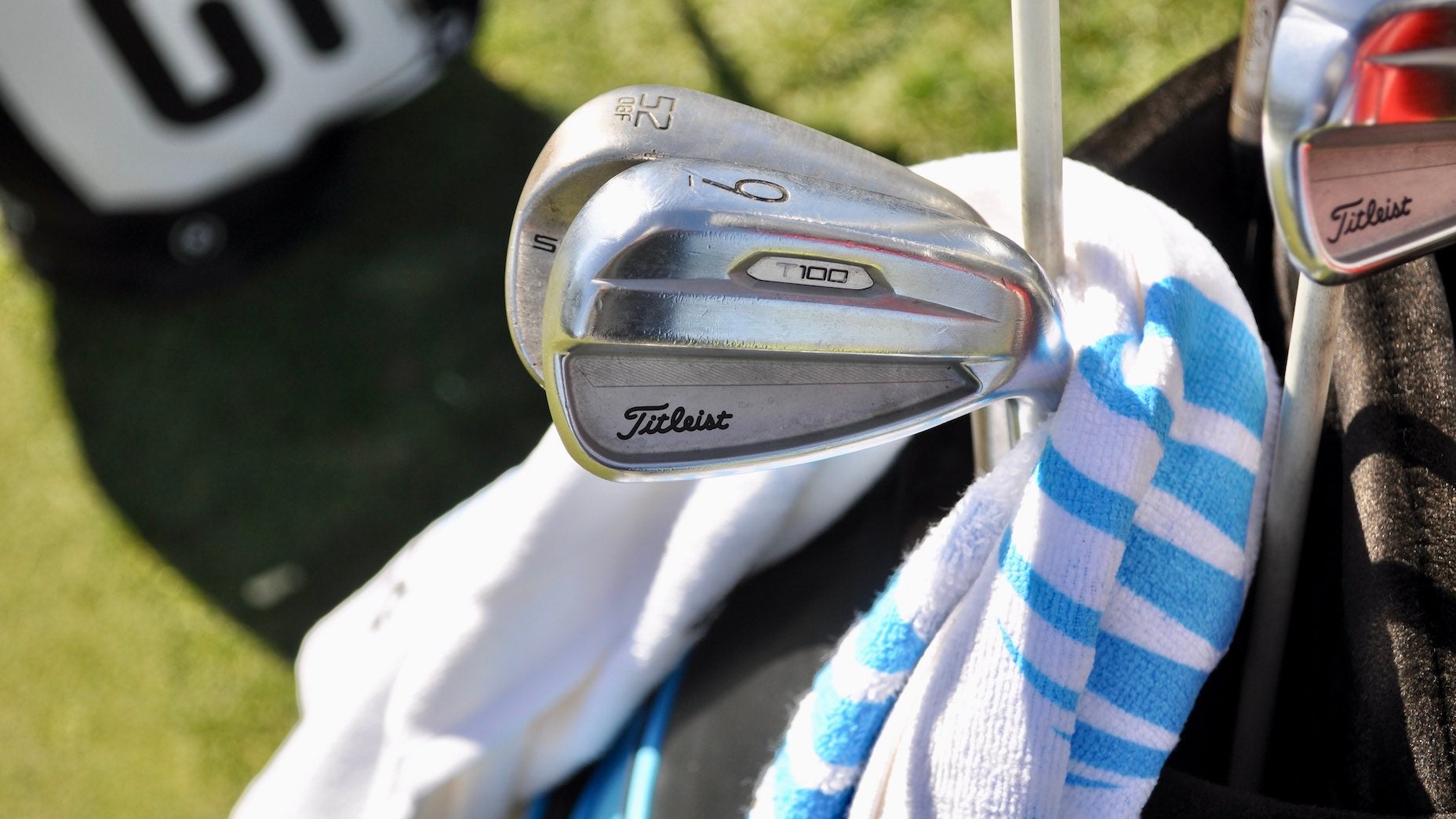
Jordan Spieth gives his fans a little bit of everything.
Getty Images
Jordan Spieth says that his wife Annie never comments on his golf. But when he saw her after Saturday’s third round at the RBC Heritage, she couldn’t help but offer a simple piece of advice.
“You need to take five seconds, if you miss a putt, before you hit your tap-in.”
The comment came as a direct response to the way in which Spieth’s Saturday ended: with a missed one-footer on the 18th green. The subtext of Annie’s advice was clear: Her husband might be an even better golfer if he wasn’t so damn thrilling to watch.
If this weekend in Hilton Head proved anything, it’s that when Spieth is anywhere near contention, golf fans need to get near a television. The RBC falls directly in the Masters hangover zone; we couldn’t possibly have been expected to care about another golf tournament just a week after Augusta wrapped. But we tuned in anyway because it’s Jordan Spieth, because we’ve watched him grow up on the PGA Tour, because we’ve seen him go from phenom to struggling artist to family man to reinvented golfer, all before the age of 29.
It’s a testament to the Jordan Spieth Experience that golf fans enthusiastically re-boarded the PGA Tour carousel, but reboard we did. And those of us tuning into the action from Harbour Town were rewarded with a thrilling Sunday in which a dozen or more players had a chance to win coming down the stretch. We saw strange penalties, chip shots into the water, crucial made and missed putts, rallies and meltdowns. It was an exciting day with exciting twists and turns, and the golfer left standing at the end was the most exciting of all.
How did Spieth explain his final-round 66? One reporter suggested it was an “unbelievable rollercoaster.” Spieth shrugged that off.
“It felt like a round of golf,” he said matter-of-factly. “It felt like a Sunday on the PGA Tour.”
Not all rounds of golf are created equal. And no other golfer is created like Jordan Spieth. His Sunday featured two eagles in his first five holes, a must-make 10-footer for birdie on 18 and a clutch up-and-down from the bunker in a playoff. His ability to present that as just another day at the office reminds us: Spieth is used to getting wild.
That’s his way, after all. Impossible shots look easy. Easy shots look impossible. It’s never boring, and it’s never simple, and the moment you think you’ve figured out how his tournament is going to go is typically followed quickly by the moment you realize you’re wrong.
Spieth entered Sunday at the RBC in a state of deep frustration.
He was upset about missing his first career cut at Augusta National, where he’d been nearly invincible, logging five top-threes in eight starts before this.
“I hated it. It was the worst feeling. It was the worst feeling as a golfer that I can remember,” he recalled on Sunday. “It’s my favorite tournament in the world, and I just love contending at that event. I was hitting it really, really well and honestly just didn’t feel like I deserved to miss that cut. I felt like I hit shots right where I wanted to and ended up somehow at 6 over.”
Spieth was frustrated, too, about the way he’d finished Saturday, with that missed shortie at 18. His frustration began the moment the ball lipped out, leaving him shell-shocked in front of the entire crowd. It continued through the night.
“Even this morning, I was kicking myself. I thought about it all night. Just like — how am I going to get that back?”
He got it back by being Jordan Spieth.
That meant a chip-in for eagle at No. 2. It meant a 25-footer for another eagle at No. 5. It meant a birdie at No. 8 to get into serious contention. And it meant a miss from inside four feet for par at No. 9, followed by a missed five-footer at No. 11, just to make you feel silly for get invested. That’s one of the funny things about this version of Spieth: The ball-striking has returned but the putter has gone balky. He was the best golfer in the field from tee to green. Once he got onto the green, he was one of the worst, losing 2.5 strokes putting.
The way he played the 18th hole on Saturday and the way he played the 18th hole Sunday, taken together, tell you something about the Spieth Experience. Each day he hit his approach to just outside of 10 feet. On Saturday what happened next was a shocking three-putt bogey. On Sunday Spieth coolly buried the putt in the center to post the clubhouse lead, forcing the rest of the field to come catch him. They didn’t.
That’s Spieth. The good, the bad and the ugly. The thrilling, the shocking, the sense of anticipation. (You get the director’s-cut commentary, too — caddie Michael Greller may be the hardest-working caddie and best listener on Tour. No wonder he forgot his bib for the playoff.)
The fact that Spieth’s wife Annie and their baby son Sammy were there to greet him on the 18th green was a reminder that times have changed. Spieth credited Sammy with being a champion sleeper and with being a good hang in the mornings pre-round.
“It just takes your mind off of things and puts it where it should be, which is in the moment of hanging out. I really, really enjoyed that.”
That’s one of Spieth’s secrets: He gets fully invested in the moment. It means he makes a verbal pros-and-cons list before every shot. It means he makes every swing with intentionality. It means he makes a mess and then cleans it up, and if he can’t clean it up it’s because he’s tried so hard that he’s actually made it worse. It means he makes every shot count.
At least, as long as he remembers to take five seconds.
But if he always remembered to play it cool, he wouldn’t be Jordan Spieth. If there were no missed tap-ins or ill-advised hook stingers from the woods, he wouldn’t be Jordan Spieth. There wouldn’t necessarily be a lineup of kids waiting for him as he exited his winner’s press conference. And this latest win wouldn’t mean quite as much for the golf world. But this is Jordan Spieth, so it does.








